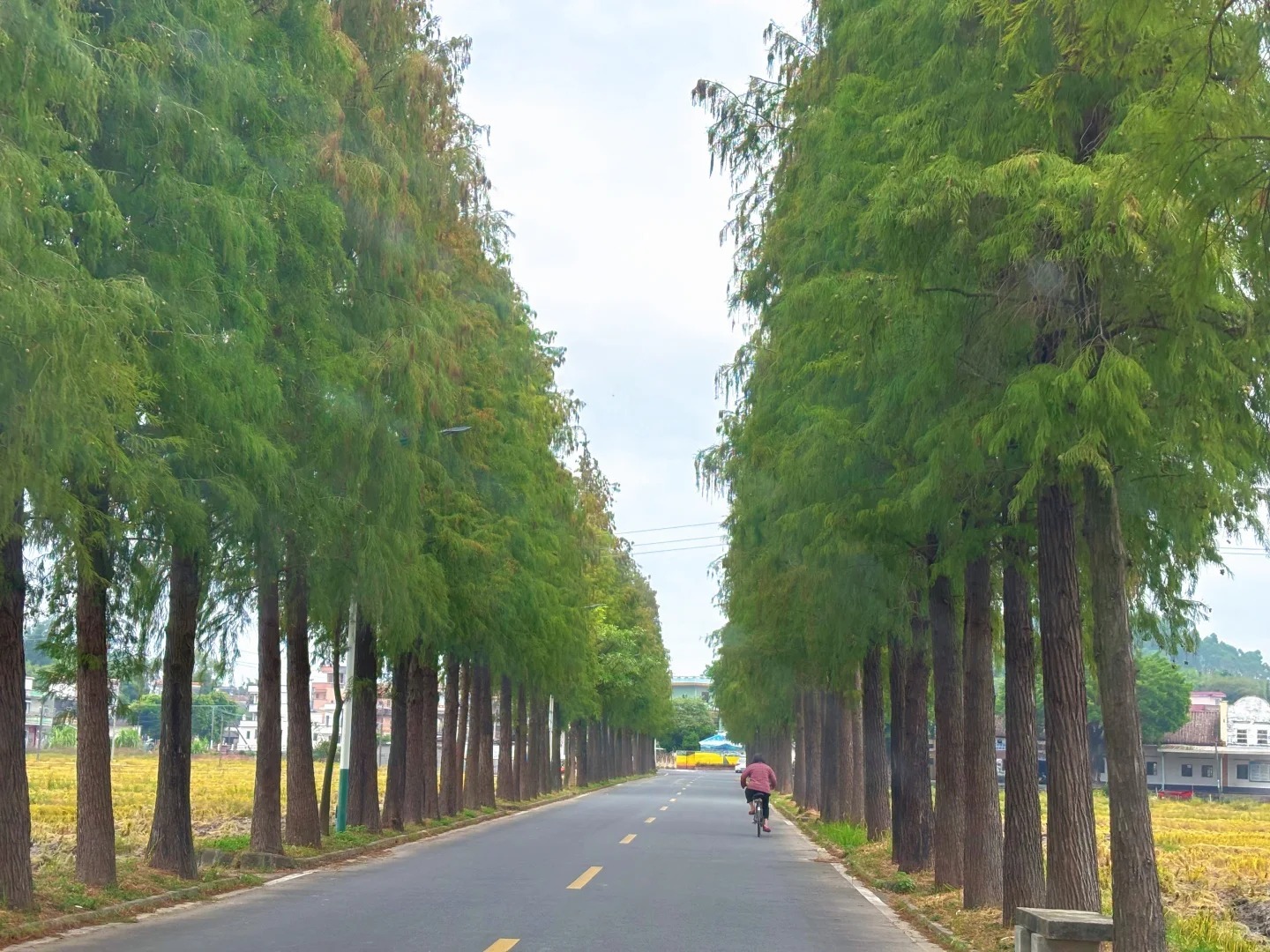What Happens When No One Owes You Anything Anymore in Rural Villages?
In many rural villages across China, the social fabric no longer weaves as tightly as it once did. Networks of mutual obligation — once sustained through harvest seasons, shared rituals, and unspoken codes of exchange — now strain under the pressures of modernization, migration, and market logic. Familiar faces remain, but familiarity itself is fading.
This decline is not always visible in roads or roofs. It reveals itself instead in quieter absences: neighbors who no longer appear at funerals, fields harvested by hired workers rather than kin, the subtle discomfort around giving a gift that once would have spoken for itself. Relationships that once unfolded over years of uneven giving and delayed return are increasingly condensed into transactions — immediate, measured, and final.

To understand what is being lost, we must first understand what once held people together. In the decades surrounding economic reform, many rural communities were bound not by contracts, but by a slow, durable rhythm of delayed reciprocity. A gift was not meant to settle a score, but to keep a door open. One gave not to clear a debt, but to prolong a relationship. A neighbor might deliver freshly milled rice to a family with a sick elder, expecting no immediate thanks — only that the kindness would linger. Months later, that memory might be returned not with words or money, but with quiet help in the fields, or a dish of food brought unannounced to a funeral wake. The exchange was never even, and never final. That was precisely what made it meaningful.
Even funerals themselves were more than moments of private mourning; they were acts of public recognition. Villagers often traveled from other towns not only to pay respects, but to repay old favors, renew connections, or signal ongoing belonging. The number of guests, the envelopes offered, the distance traveled — these were not formal obligations, but deeply felt gestures shaped by accumulated memory. To abstain from such events wasn’t just impolite. It meant stepping outside the web of relations that once defined the contours of rural life.
Sustaining the Unspeakable Contract

At the center of traditional rural life was not the formal contract, but the unspoken expectation of eventual return. A gesture of help — a loan of tools, a basket of eggs, a discreet envelope at a wedding — rarely came with explicit terms. Its meaning lay precisely in its vagueness. To name a value, or to demand a deadline, would reduce a relationship to a transaction — and in doing so, risk destroying it.
This logic depended on two core principles: indefiniteness and asymmetry.
Return was expected, but never immediately. Time itself became part of the exchange. Delay signaled trust, and a willingness to remain entangled. A debt returned too quickly — or too precisely — could end a relationship, implying that the account was closed and no further connection necessary. For instance, if someone repaid exactly two kilograms of rice they had once received — and nothing more — it might be interpreted as a subtle way of declaring the relationship finished.
Likewise, value was not measured in strict equivalence. A gift might be small now and large later, or large now and symbolic later. What mattered was not parity, but continuity. In this way, human ties were not managed through balance sheets but through imbalance — a careful, often subconscious calibration of who owed whom, and how much, across shifting seasons of life.
From Entanglement to Exchange: The Disruption of Relational Life
As rural China entered the reform era, the very conditions that had once made reciprocal relationships essential began to shift. What replaced scarcity was not abundance, but a new form of uncertainty — one shaped not by interpersonal dependence, but by institutional detachment and economic mobility.
Cash, above all, changed the terms of connection. It offered clarity where ambiguity once ruled. Instead of a gift, one could offer payment. Instead of a favor, one could hire help. The logic was clean, immediate, and final. But in being so, it undermined the deeper value of delay and asymmetry. In a gift economy, to owe is to belong. In a cash economy, to owe is a failure — a liability to be erased as soon as possible.
Labor, too, became monetized. In earlier decades, harvesting might involve an unspoken network of brothers-in-law, childhood friends, or former classmates. The return came in shared meals, future help, or social standing. Now, however, village fields often lie quiet until contract workers arrive — sometimes from a different town, hired for the day, paid in cash, and gone by dusk. One elder described the change plainly: “There’s no one left to owe. No one left to call.”
Even ritual exchange, once a subtle ledger of respect and relational positioning, began to feel burdensome. Weddings and funerals became sources of financial anxiety, and the giving of hongbao (red envelopes) a source of resentment. Without the shared rhythm of return, such acts no longer wove people together — they simply emptied wallets.
Perhaps most telling is the emotional register of these changes. Rarely are they named as failures. More often, they are described with a quiet shrug: things are different now. Relationships have not ended, but they have flattened. Where once there was a current of ongoing mutuality, now there is stillness — or at best, a periodic transaction.
Echoes in the Present: What Remains When Reciprocity Fades

The erosion of traditional reciprocity does not mean that rural life has become entirely individualistic. In some villages, vestiges of the old logic still echo through seasonal rituals, kinship obligations, or the quiet coordination of care among the elderly. But these are increasingly residual — inherited forms drifting in a world governed by new terms.
Ancestral halls, once the anchors of lineage solidarity, remain standing in many regions, but often function more as historical artifacts than as active sites of negotiation and authority. Their symbolic power persists, but their role in shaping everyday decisions has diminished. Similarly, festivals and communal feasts still draw attendance, but often less out of obligation and more out of habit — or even curiosity.
One space where the older relational logic endures, if in altered form, is in the lives of women who marry across villages. Traditionally seen as bridges between kinship groups, their gift-giving practices — during births, funerals, or homecomings — continue to stitch together otherwise drifting networks. A married daughter might return to her natal village during a festival carrying sesame oil, dried fish, or packets of cigarettes, placing them on a small table by the ancestral hall. These gifts, though modest, signal a persistent link: not to property, but to memory.
Yet even here, something has shifted. Younger generations, often raised far from their native villages or embedded in urban rhythms, no longer internalize these codes. For them, obligation is increasingly weighed against convenience; social standing is accrued not through quiet debts but through public visibility, education, or material success. To be unentangled may now seem like freedom.
And perhaps it is. But in the stillness that remains — the quiet houses, the solitary harvests, the unreturned favors — there is also a question. What kind of person is made in a world without owed gifts, without long memory, without asymmetry? In a time when efficiency and self-reliance are virtues, the older model of personhood — bound by soft debt, shaped through slow return — may seem outdated. But it may also have offered something rare: You belonged because you were part of a web of relationships — family, neighbors, kin — that carried expectations, memory, and mutual care.
Frequently Asked Questions
A: In rural villages, reciprocity refers to a cultural practice of delayed and uneven gift-giving. People gave not to settle debts, but to sustain long-term relationships. These exchanges helped build social trust and belonging within the community.
A: Modernization, urban migration, and the rise of cash-based economies have disrupted traditional patterns of exchange. Relationships once shaped by mutual obligation are increasingly replaced by direct transactions and individualism.
A: Events like weddings and funerals were communal, not just personal. They served as public moments where villagers affirmed ties through attendance, gifts, and shared labor — reinforcing the network of social obligations.
A: Married women often acted as bridges between villages by exchanging gifts during festivals and family events. Their gestures sustained links across kin groups, even as younger generations drifted away from these practices.
A: Not entirely. Some rituals and habits still persist, especially among the elderly or during holidays. But they are fading fast, increasingly viewed as burdensome or obsolete by younger generations raised in urban or digital environments.
Steven
Roots of China was born from my passion for sharing the beauty and stories of Chinese culture with the world. When I settled in Kaiping, Guangdong—a place alive with ancestral legacies and the iconic Diaolou towers—I found myself immersed in stories of migration, resilience, and heritage. Roots of China grew from my own quest to reconnect with heritage into a mission to celebrate Chinese culture. From artisans’ stories and migration histories to timeless crafts, each piece we share brings our heritage to life. Join me at Roots of China, where every story told, every craft preserved, and every legacy uncovered draws us closer to our roots. Let’s celebrate the heritage that connects us all.



